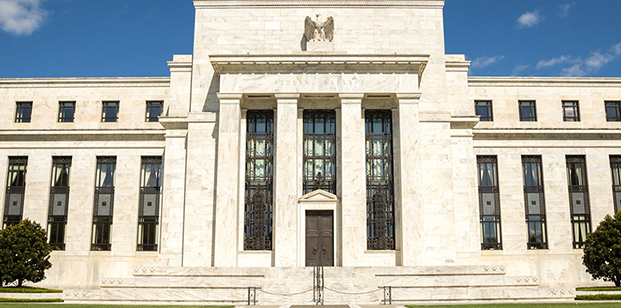The FTSE 100 Index reached a new all-time high during August amid widespread hopes that the US Federal Reserve will implement an interest-rate cut in September.
- The FTSE 100 Index reached a new high
- The UK base rate was cut to 4%
- CPI inflation reached its highest rate since early 2024
Challenges ahead for the big banks? The FTSE 100 Index reached a new all-time high during August amid widespread hopes that the US Federal Reserve will implement an interest-rate cut in September. However, the blue-chip index subsided from its highs towards the end of the month amid speculation that the UK government might levy a windfall tax on the banking sector. Over August as a whole, the FTSE 100 Index rose by 0.6%, while the FTSE 250 Index fell by 1.6%.
“Tax increases are widely expected in the autumn Budget”
Base rate cut to 4%: having expanded by 0.7% during the first quarter of 2025, the UK economy grew by a better-than-expected 0.3% in the second quarter, underpinned by activity in the services and construction sectors. The Bank of England (BoE) cut its key interest rate to its lowest level since February 2023 during August. Central bank policymakers voted by five to four for a quarter-point cut, taking the base rate to 4%. The BoE predicted that policies in the Spring Statement are likely to dampen economic growth, and that measures, including higher employers’ National Insurance contributions and minimum wages, will stoke inflationary pressures. Although government borrowing proved lower than expected during July, tax increases are widely expected in the autumn Budget.
Persistent inflationary pressures: the rate cut appeared to provide a boost for consumer confidence , which reached its highest level since late 2024. However, the annualised rate of consumer price inflation rose to 3.8% in July – its highest level since January 2024 and undermining hopes for further monetary easing in the near future.
22% of UK companies cut dividends in Q2 2024 vs Q2 2023: according to Computershare’s Dividend Monitor , UK dividend payouts fell by 1.4% to £35.1 billion on a headline basis in the second quarter of 2025. On an underlying basis, dividends rose by 6.8% to £33.1 billion on a constant currency basis. 22% of companies cut their dividends during the period year on year.
£10 trillion AUM in the UK: the UK investment management industry registered a new peak of £10 trillion assets under management (AUM) in 2024, according to the Investment Association. The increase reflected strong market performance. For the first time, AUM managed on behalf of retail investors surpassed pension funds for the first time, while assets managed on behalf of overseas investors rose above 50%.
To view the series of market updates through August, click here









